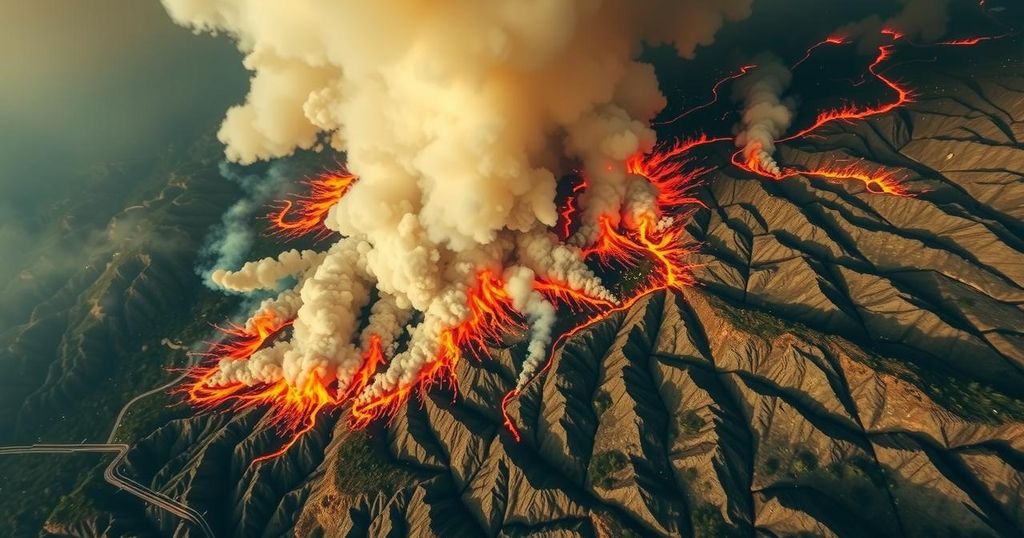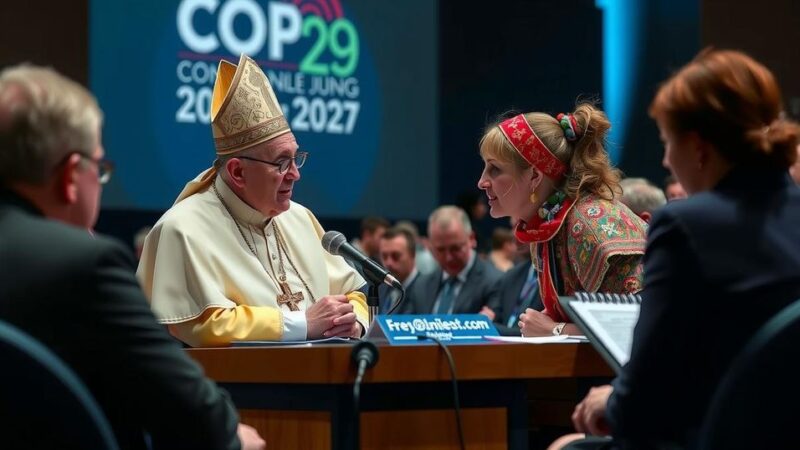Climate change is significantly contributing to increased smoke pollution from wildfires, leading to an additional 12,000 deaths globally each year. This rise in mortality is particularly pronounced in regions like South America, Australia, and Europe, while urban populations are also increasingly affected. The health impacts of PM2.5 emitted during wildfires necessitate urgent action to improve air quality and minimize public health risks.
Recent findings highlight that wildfire smoke pollution is responsible for an alarming increase of approximately 12,000 deaths annually worldwide, primarily driven by the exacerbating effects of climate change. It is reported that deaths attributed to smoke from wildfires surged from 669 in the previous decades to an unsettling 12,566 in the 2010s alone. In total, fire-related mortality due to air pollution escalated from 46,401 in the 1960s to almost 100,000 in the 2010s. Notably, 12,000 of these deaths have been explicitly linked to climate change. Regions such as South America, Australia, and Europe have witnessed the most pronounced increases in wildfire-related fatalities due to diminishing humidity and rising temperatures, particularly in boreal forests. This contrasts with South Asia, where heightened humidity has correlated with a reduction in deaths. Chae Yeon Park, a researcher from the Japanese National Institute of Advanced Industrial Science and Technology and the lead author of the study, remarked, “This indicates that climate change is increasingly posing a threat to public health, driven by more fire smoke even affecting densely populated areas.” The study was published in the journal Nature Climate Change and employed pollution models alongside health risk assessment to establish a direct correlation between emissions-related deaths and climate change. As wildfires generate thick plumes of hazardous pollutants, they contribute to PM2.5 particle pollution, known for its detrimental effects on human respiratory and cardiovascular health. The vulnerable populations include individuals with pre-existing heart and lung conditions, older adults, pregnant women, children, and socioeconomically disadvantaged groups. With the ongoing rise in global temperatures and drier conditions, the risk of extreme wildfires is increasing significantly. Wildfires currently account for approximately 25% of particulate matter exposure in the United States, with PM2.5 emissions from fossil fuel burning linked to approximately 8.7 million deaths worldwide in 2018. Wildfire smoke has reached far beyond affected regions, impacting air quality in urban centers and contributing to regression in air quality improvements across 35 states. Christopher Reyer, a researcher at PIK and co-author of the study, noted, “It is crucial to understand that the impact of smoke from fires extends beyond those living directly in the affected areas — it also significantly affects people living in cities.” Despite urban areas not experiencing immediate mortality from wildfires, long-term exposure can lead to serious health issues.
Smoke pollution from wildfires has emerged as a significant public health threat, exacerbated by climate change that intensifies conditions conducive to severe wildfires. In recent years, researchers have highlighted the alarming increase in deaths linked to wildfire smoke and attributed to the ongoing changes in climate. The statistics illustrate a worrying trend in fire-related mortality, particularly in regions experiencing increased temperatures and decreased humidity.
In summary, the increasing prevalence of smoke pollution from wildfires poses a substantial public health risk, responsible for an estimated 12,000 deaths annually due to climate change-related factors. This underscores the urgent need for effective emissions reduction strategies and improved fire management practices to mitigate the adverse effects of rising wildfire occurrences on human health and the environment.
Original Source: www.independent.co.uk






